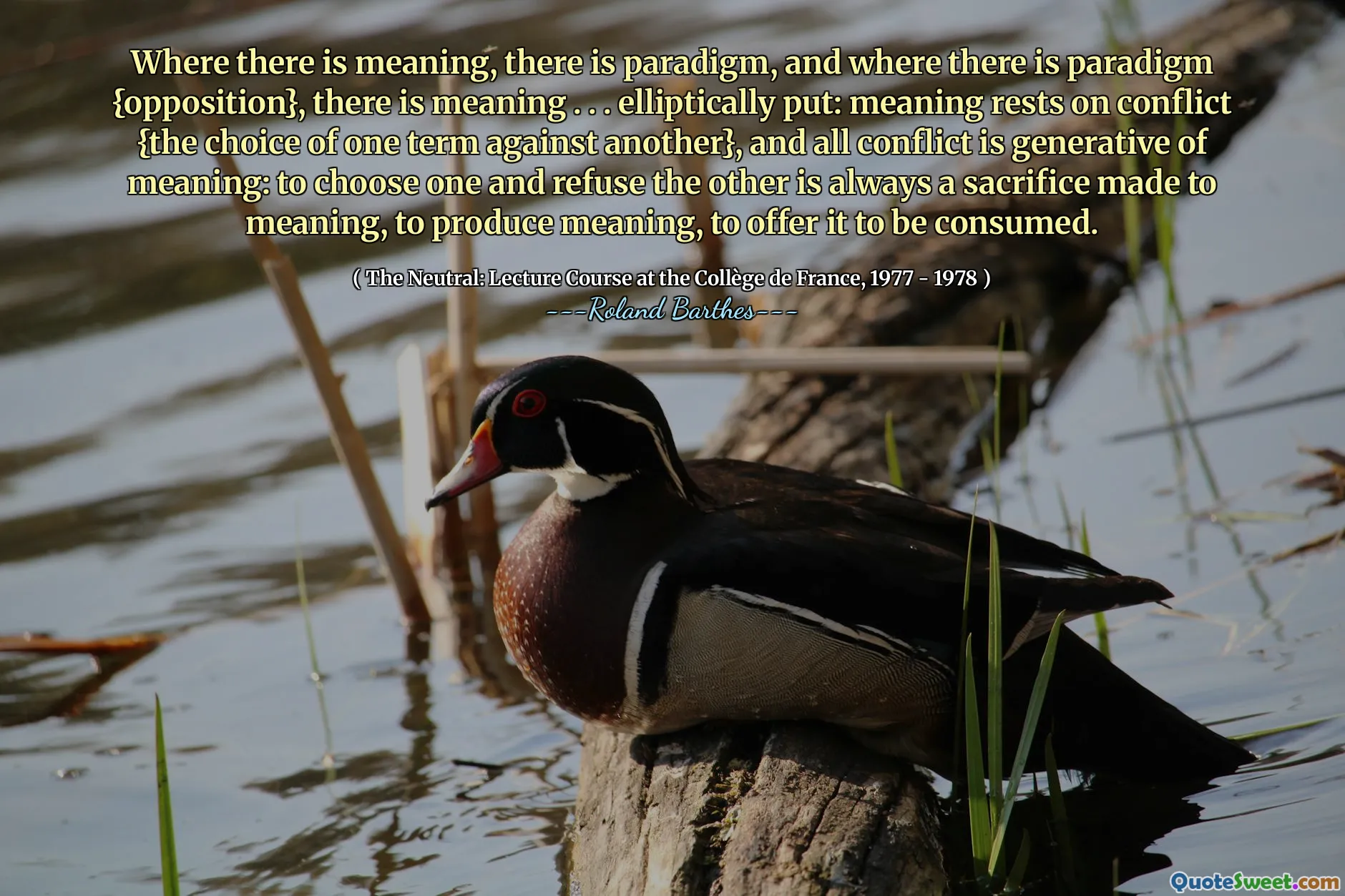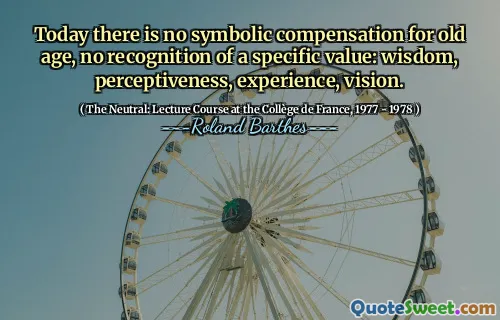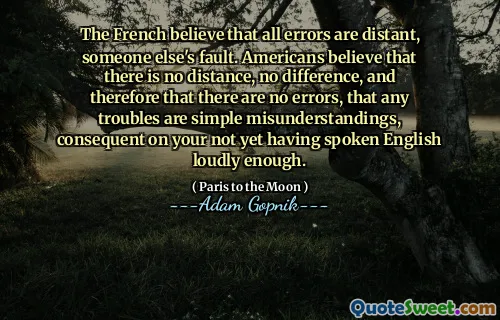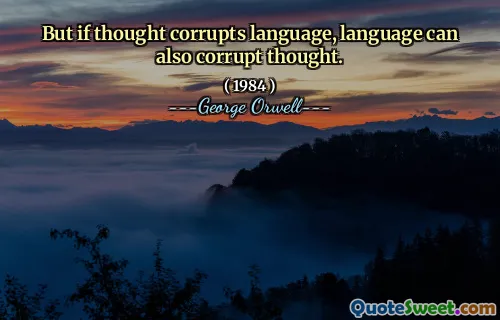
Where there is meaning, there is paradigm, and where there is paradigm {opposition}, there is meaning . . . elliptically put: meaning rests on conflict {the choice of one term against another}, and all conflict is generative of meaning: to choose one and refuse the other is always a sacrifice made to meaning, to produce meaning, to offer it to be consumed.
Roland Barthes’ reflection on meaning emphasizes the intrinsic connection between meaning and opposition, specifically the idea that meaning arises not in isolation but through paradigmatic conflict—the choice between alternate terms or possibilities. This concept resonates strongly with structuralist and semiotic thought, where meaning is never a stable, fixed entity but is produced by the differentiation among elements within a system. Barthes suggests that meaning is inherently active and dynamic, generated through a process of conflict or sacrifice—choosing one term implicitly rejects others. This act of selection is a creative moment that produces meaning; thus, meaning is not merely discovered but constructed. It offers a radical way to think about language, communication, and interpretation, recognizing that every expression inherently involves a tension, a weighing of alternatives that shapes its significance.
This perspective challenges us as readers and thinkers to pay attention to the importance of contrast and opposition in meaning-making. Rather than viewing meaning as singular or transparent, Barthes invites us to see it as emergent from debate and conflict. This aligns with his broader work in deconstructing texts and revealing the multiple layers of signification beneath apparent unity. The notion that "to produce meaning" involves "a sacrifice made to meaning" suggests that meaning is something offered actively—not passively received—highlighting the responsibility of both producer and consumer of texts. Consumers must be aware of the selective process involved in interpretation, recognizing that each choice excludes others.
Additionally, Barthes’ phrase "to offer it to be consumed" points to the social and interpersonal dimension of meaning: meaning exists not only in the producer’s gesture but also requires reception and consumption by an audience. Meaning is relational; it requires both production and reception, and this reciprocal interplay is mediated by the paradigmatic oppositions that animate thought and language. Overall, the quote provides a profound insight into the mechanisms by which language and thought organize human experience, placing conflict and decision at the heart of meaning itself.
These insights remain profoundly relevant for modern literary theory, semiotics, and philosophy of language, influencing contemporary interpretations of texts, cultural phenomena, and media. Barthes’ framing of meaning as born of conflict underscores the vibrancy and complexity of human understanding and communication in ways that continue to inspire critical inquiry.






